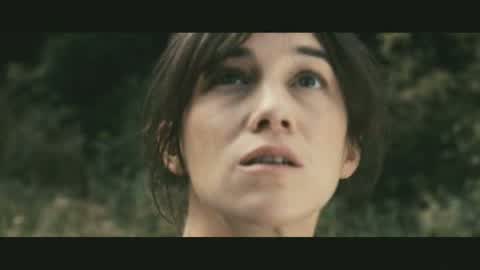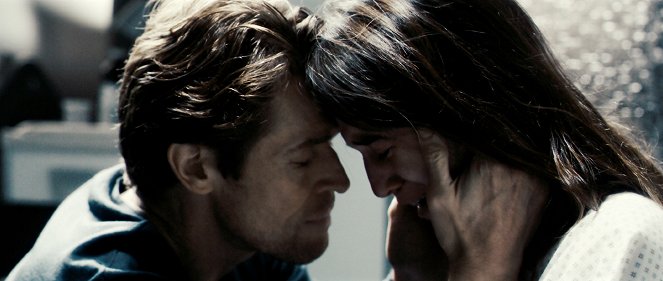Directed by:
Lars von TrierScreenplay:
Lars von TrierCinematography:
Anthony Dod MantleComposer:
Kristian Eidnes AndersenPlots(1)
A grieving couple retreats to ’Eden’, their isolated cabin in the woods, where they hope to repair their broken hearts and troubled marriage. But nature takes its course and things go from bad to worse. (Transmission Films)
Videos (3)
Reviews (12)
The visual effects are sharp and the acting performances couldn't be better, but the disadvantage of Antichrist is that everyone interprets it differently, so it's no surprise to see both five-star ratings and trash reviews. Personally, I would probably lean towards the second group because the movie didn't give me anything and didn't make much sense to me. A psychological drama with a hint of horror atmosphere that was more than pathetic. If I played an association game and heard the word Antichrist...it probably reminds me of a WTF blue movie with a very strange theme and an even stranger ending. I was expecting something else, but definitely not this.
()
This film is about as much of a horror as Bergman's Hour of the Wolf. The stunning metaphor of the decay of man and woman uses satanic properties only to underline the traditional concept of evil, the source of which Lars von Trier provocatively places in the soul of woman. In a time of correctness, his almost inquisitorial rhetoric is a revelation from hell, but it is supported by an absolutely perfect film form. After dry theatrical productions, we have the Trier-aesthete once again, which indulges in the raw images of "Paradise", in the raw studies of perfectly authentic actors. I don't know what made Trier confuse a selfless woman for a satanic woman, but I clearly rank the resulting film as one of the most captivating intimate dramas. To be offended means not to understand. Antichrist is not shallow - the audience that laughs at him and condemns him is shallow.
()
Polemics about the controversy of Antichrist passed me by at the time, but the first information about the film reassured me that it goes beyond what interests me, so I decided to avoid it. However, a few days ago I received a DVD of the film as a gift, and as they say, you don't look a gift horse in the mouth. I don't have a problem with Lars von Trier, just like the majority of creators, but at the same time, I have no problem mercilessly sending my favorite director or actor to fiery hell if their film doesn't resonate with me. I became fond of Trier when I watched his cult series, The Kingdom, and I highly appreciated the content of his "theatrical" films. But some time ago, I couldn't help but notice that the fundamental characteristic of Trier's work is the manipulation of the viewer and facts, which he adjusts according to his artistic visions. Furthermore, the problem with him is that since the time he drunkenly devised Dogme 95, he has become a fashionable director in the true sense of the word, satisfying the intellectual snobs' ideas of true art in film and becoming a pampered celebrity of the festival audience. Unfortunately, this has become an integral part of his personality and his filmography. He caters to his snobs with plenty of things, from supposedly encrypted messages through provocative and genre films promising titles to the necessary reference to Tarkovsky in the end credits. The trouble is that there is an absolute antithesis in the ideological foundations between his film Antichrist and Tarkovsky's work, not to mention that Tarkovsky could afford to ignore the viewers because a film industry did not exist in the Soviet Union, and the decisive factor for filming and permission to distribute the film were not the reactions of the audience or the intentions of the producers, but the approval process, where it was necessary to overcome several officials at the relevant ministry. Tarkovsky could therefore subjugate everything to his artistic expression and his artistic ideals. Lars creates his films under real capitalism and calculates both with the controversial content of his films and with the scandals that his outspoken mouth and behavior regularly provoke. He knows very well that one or two failures are enough to tarnish his star status. Antichrist should not be a highly reviewed film on FilmBooster with over five thousand ratings simply because it is not a film that corresponds to the mass taste of film viewers in any way. It is a film that caters to the festival and club audience, so we see a lot of three or four-star reviews and comments like "I didn't know what to make of it, but it's a wonderful piece of work..." rather speak of user conformity than the real qualities of Antichrist. The genre identification with horror is confusing; it is more of a surrealist dramatic-mysterious game on the subject of the decay of a partnership. Unfortunately, it is pretentious, tiresome, and unbridled. Of course, Trier hasn't forgotten his filmmaking skills, and one can revel in the camera or other elements of film language, but they should also form a cohesive film. Antichrist is simply an unengaging film that wants to provoke with its controversial content and violent or pornographic scenes. Typically, I would give such films at least one star for craftsmanship, but in this case, I am happy to make an exception, which can be seen as a counterweight to the many uncritical users. I was startled once and disgusted three times, but the majority of my feelings fell into the category of disinterest, and this film is simply one of those that amuse me with the comments of many fans and how many meanings one can find when you are looking for them. I did not find in this film much of a story, good dialogue, interesting characters, and catharsis because the final third of the film is utterly unnecessary. Yet the prologue seemed so interesting... Overall impression: 5%.
()
(less)
(more)
After all the controversy around Antichrist, the film itself is quite surprising, or rather, its contents are. In terms of filmmaking, I’m truly fascinated, I’ve watched the prologue five times already and I don’t think I will see anything better this year, but the contents of the film bothered me a little. I didn’t like the transition to the last act, some scenes are too gratuitous and there were moments that I thought could have gone deeper. Basically, the effect wasn’t as intense as I wanted or expected. Even ordinary exploitation horror can sometimes make me feel worse psychically.
()
How I love csfd around 2010. The stupid verbalization of the pages is still in its diapers and racism is peacefully resting in the social subconscious, while flexit intoši with their theories come here to discuss whether big words are needed for everything and how glossy the visual information is. Oh, the youth. Looking back on the completed Trilogy of Depression (Antichrist, Melancholia, and Nymph()maniac) and with an understanding of the author's mental condition context, the much-discussed misogynistic interpretation of his works is simply a trap, caught only by the stupidest fish in the pond. Trier at that time was a veteran of therapeutic sessions with his clinical depression, which led him to channel his depression into creation (generally crappy advice, but it worked out in this case). Of course, in his trilogy, the roles of therapists are reduced to self-righteous norms, trying to fit the sick into some box through dysfunctional principles of human psychology. But the unhealed Trier is not going to fit in; he perceives depression as a supernatural, unreadable, unnamable force of evil. Something primordial, irrational. Chaos reigns, Freud is dead and the character of the woman in Antichrist is Trier's alter ego, while the character of the man is a symbol of the elevated society with its knowledge and teachings. Since then, he actually continuously mocks rationality and efforts to understand and describe the complex human individuality in his films. In this respect, I believe he has reached some reconciliation. Nonetheless, not peace. But you can completely ignore interpretations and enjoy this first-class nightmare, a gift for horror minimalists who roll their eyes at the fifty-seventh assessment, but a polaroid picture of a child with mismatched shoes has haunted them in their dreams for almost 15 years.
()




Ads